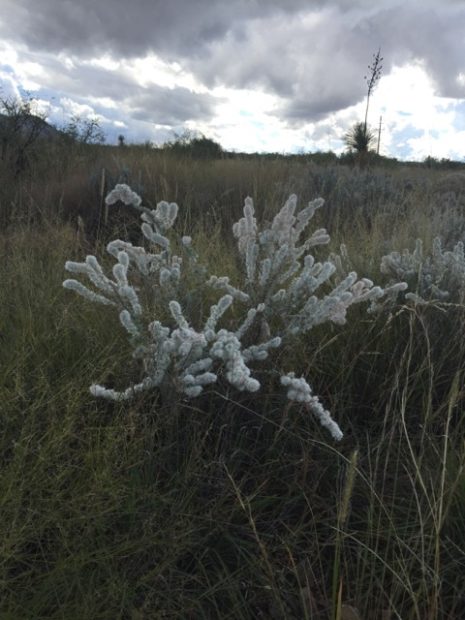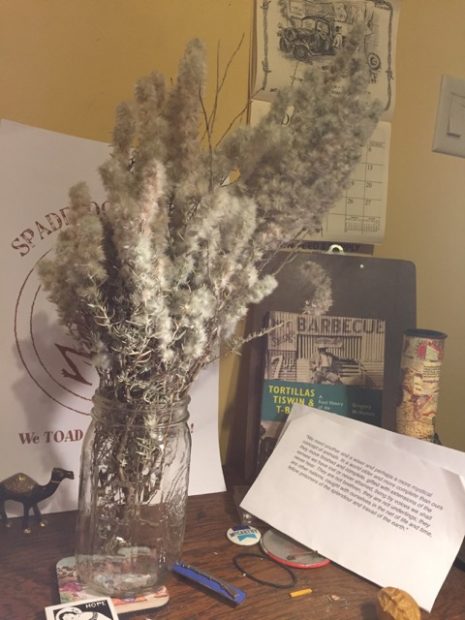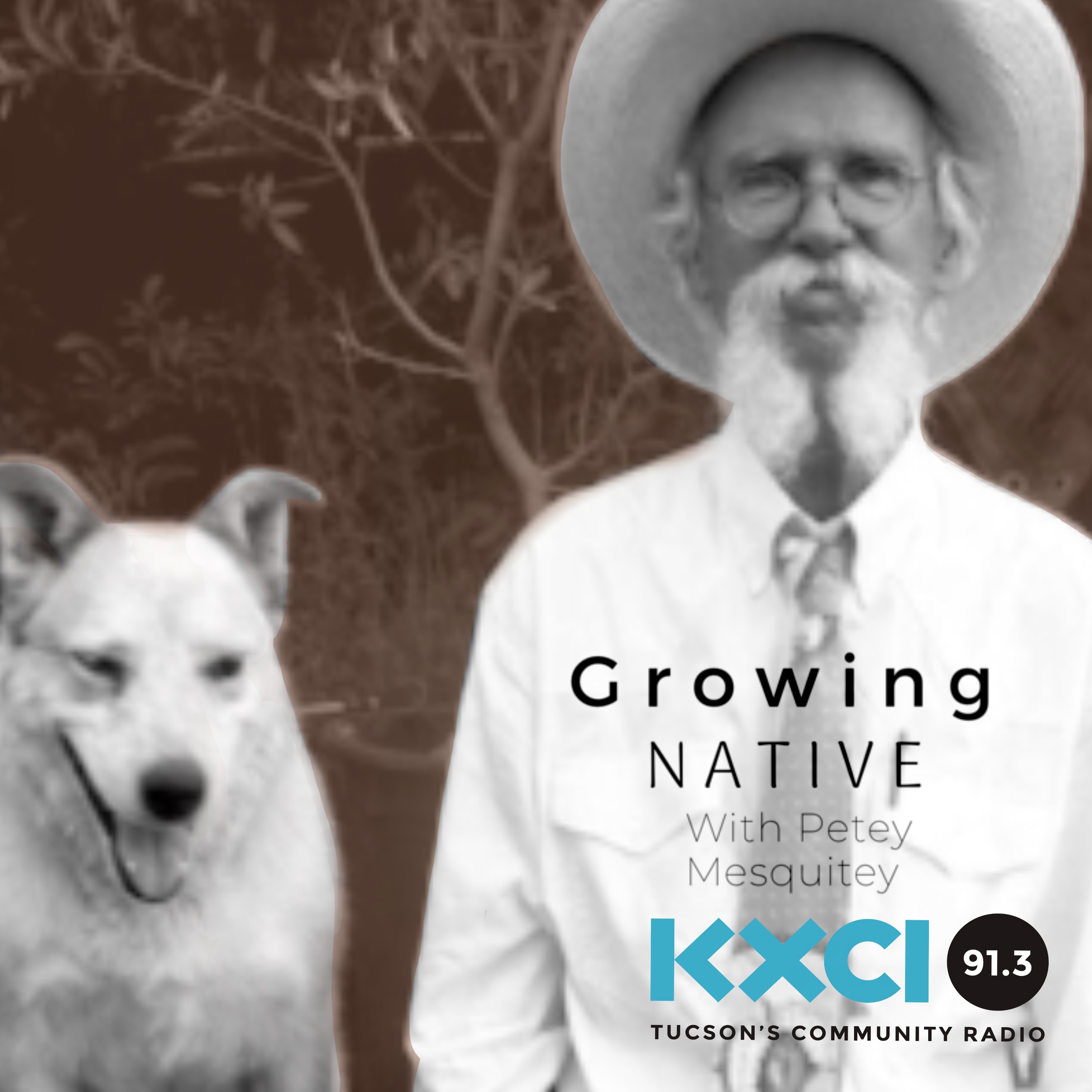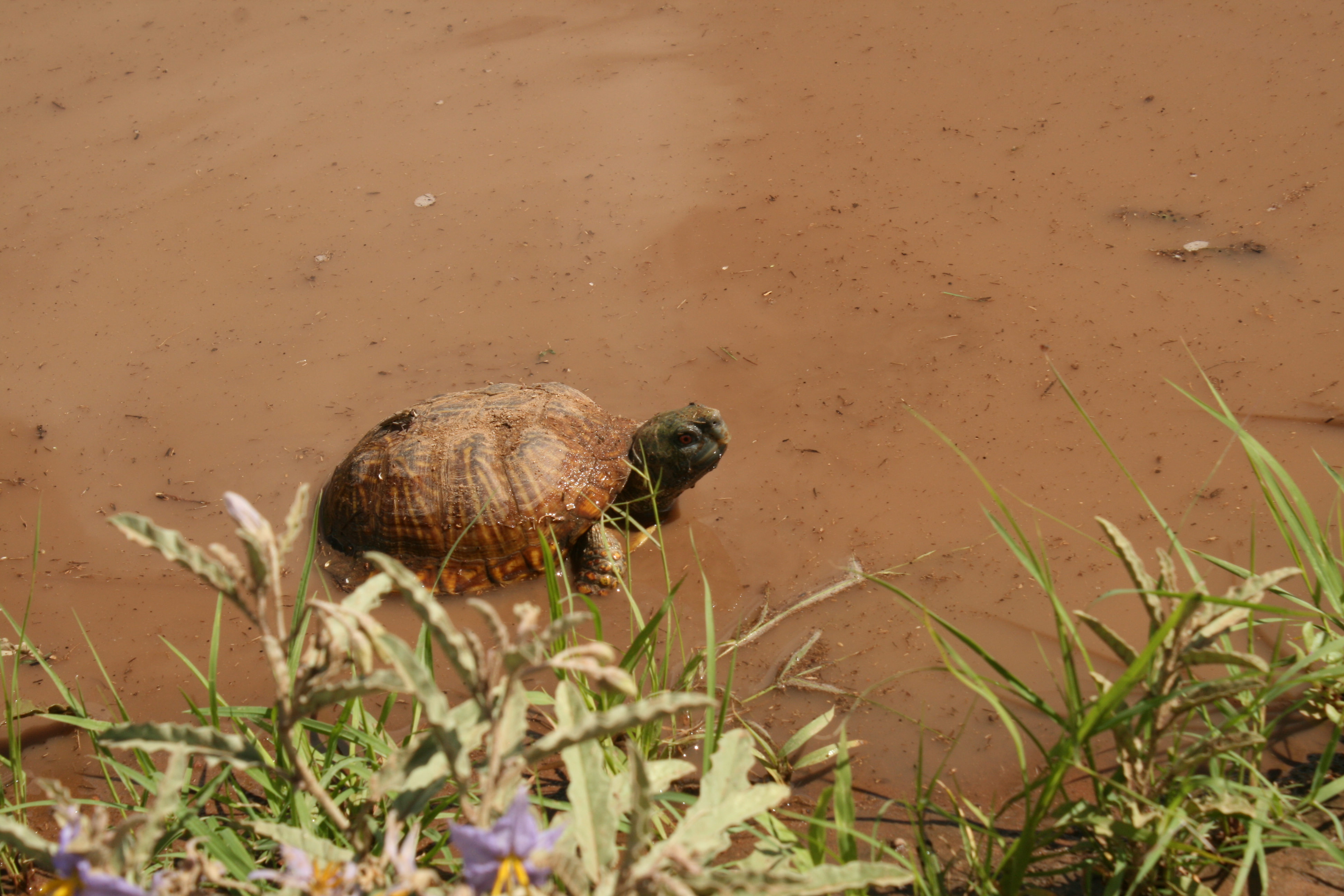I think it’s fascinating that there are several species of winter fat found in Eurasia and Europe. That’s where the genus was first described by a German botanist in the 1770s and named in honor of the Russian explorer and naturalist Stepan Krascheninnikov. And it’s probably just me, but when you add the ia to make the Latinized botanical name Krascheninnikovia, you get seven syllables. I love words or names with seven syllables…okay, it is just me.
Anyway, the specific epithet for our North American winter fat is lanata and refers to the wooly seed stalks, which by the way are pretty neat in a dry floral arrangement along with some buckwheat (Eriogonum spp…maybe wrightii) and a native bunch grass like bull grass (Muhlenbergia emersleyi). Okay, that’s just me.
I find winter fat (it can be winterfat if you prefer) in alkaline fields or mesas near favorite limestone slopes. It’s always mixed in with grasses and other interesting plants like littleleaf sumac (Rhus microphylla) or soaptree yucca (Yucca elata).

The photos are mine. One photo is of the plant in dry rocky habitat. I like the photo with the dark storm clouds overhead. Large rain drops were splattering me while I was taking that photo. And I like how the lighting enhances the wooly white seed heads. I’m thinking winter fat would be a nice addition to a moonlight garden… I know, that’s just me…and how do you like the wooly seed head bouquet on my messy desk? Cool right? Very cool.


Seeing persimmons in an abandoned orchard at the Chiricahua National Monument pulled up a childhood memory and later I found myself pulling books off...

Well, every year I find the the same male box turtle in a monsoon puddle out by our front gate. A friend asked how...

The botanical name of our 3 needle per fascicle (bundle) Chihuahuan pine is Pinus leiophylla var. chihuahuana. Further south into Mexico where the 5...